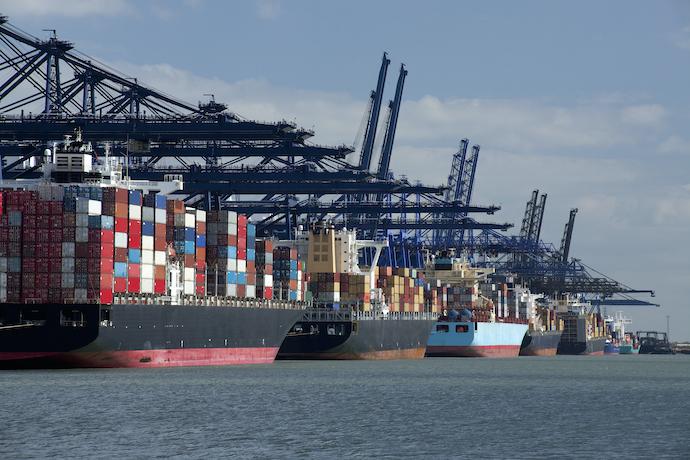UK eyes expanding its ETS to deepsea shipping – closing EU loophole
A loophole allowing ocean carriers to dodge ETS charges via a port call in the UK could soon be closed, thanks to a government effort to expand the UK’s ETS scheme.
Parliament is mulling adding deepsea shipping to the UK emissions trading scheme (ETS) that currently includes power plants, factories and airlines, as well as domestic shipping – however the current legislation does not include international shipping calls at UK ports, thus creating a loophole that allows European importers to pay reduced ETS charges.
The UK ‘scheme’ is not to be confused with its EU counterpart, which is an emissions trading ‘system’.
“Expanding the scheme to include the maritime sector… will ensure that the price of fuels used by the sector better reflects their environmental impact,” the UK ETS Authority said late last week.
Vessels which call at EU ports from ports outside the region must pay a charge equivalent to 50% of their ETS emissions charges. But by calling at a UK port like Southampton or Felixstowe first, they can pay a fraction of these fees.
MSC has launched a Britannia service, which from February when it formally launches its standalone network includes a call at Felixstowe before proceeding to Antwerp, while its Albatross service will see calls at Felixstowe and then London Gateway before Rotterdam; and Hapag-Lloyd’s expanded China Germany Express will call at Southampton first when it introduces a new port rotation in January.
Apart from the hit to the EU’s decarbonisation goals, OceanScore MD Albrecht Grell said the UK loophole would tie-up ship capacity, inflate freight rates and could cause disruption as carriers queue up at UK ports.
“We need to consider that UK ports do not have the capacity to handle significant increases in throughput, so more port congestion, time lost, would have to be considered,” he said.
A report published in May shows that the UK government has already recognised this, acknowledging: “…Operators wishing to ship goods to and from Europe can largely avoid the EU emissions trading scheme by using UK ports to ship goods to and from EU destinations.
“Failure to align the UK ETS with the EU ETS provisions for international shipping risks the promotion of carbon leakage,” the report adds.
Mr Grell added that he did not expect the loophole to last for long at any rate, as the EU is planning to review its ETS from 2026.
